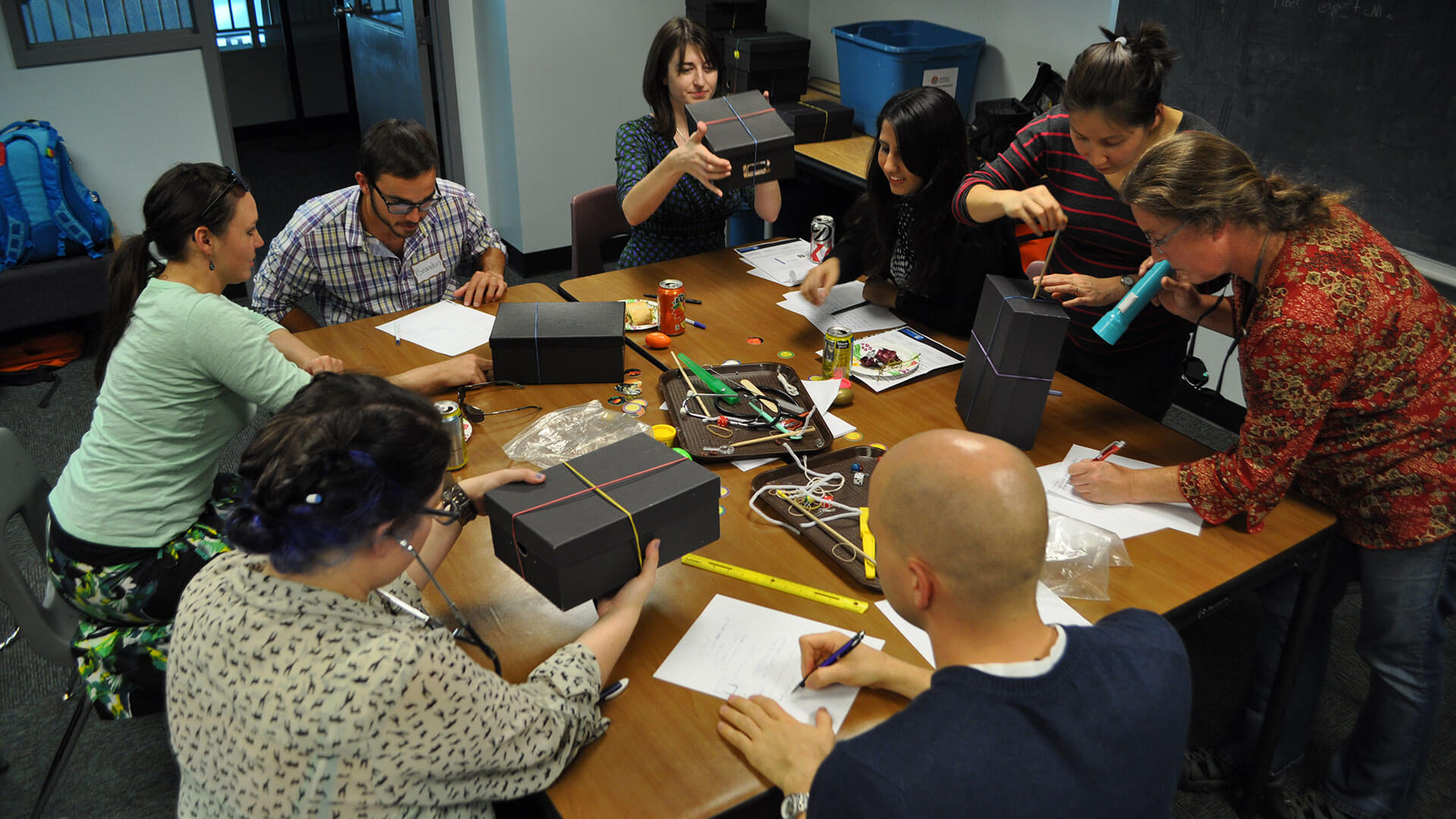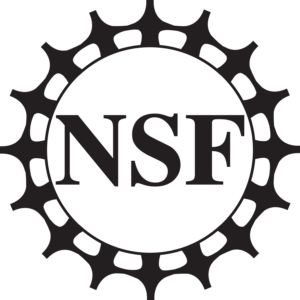For Scientists

Scientists participate in professional development that prepares them for inquiry-based conversations about their research.
After participating in training workshops, scientists put these skills to use during public engagement opportunities at museums and zoos, in libraries, and even at festivals and farmer’s markets. Participating in ongoing public engagement events is not only rewarding, but is essential for continued practice and improvement of communication skills.
Dozens of organizations that make up PoPNet offer PoP training and public engagement opportunities. If you’re a scientist looking for partnership opportunities, contact our team to find the Portal to the Public member site nearest to you.
*What do we mean by scientist? PoPNet sites work with a variety of individuals in STEM-based careers, including includes practicing research scientists, engineers, mathematicians, individuals with technical backgrounds such as nurses and technicians in hospitals, logistics coordinators in research labs, graduate students, as well as applied scientists and professionals such as fisheries managers and environmental planners.
Why work with a Portal to the Public (PoP) site?
- Scientists who participate in PoP communication training report a significant increase in feelings of preparedness for public engagement.
- Scientists who participate in PoP programs believe it was worth the time and effort that they put in and would recommend PoP to a colleague.
- Visitors interacting with scientists at PoP events highly value the experience, particularly the opportunity to have an authentic interaction with a real scientist. They indicate a very strong desire to have more opportunities to interact with scientists.
Scientists describe the benefits of participating in PoP in their own words:
I’ve always dreaded the question “So, what do you do?” at parties because I’ve struggled to answer it in a coherent way. I’ve become so much more comfortable talking about science, estimating how understandable my dialogue is, and making my science interesting to the public. Not only has that helped me with adults, but now I know how to tailor it to anyone – children, young adults, grandparents. Because I am more comfortable now, I am out there communicating more and encouraging others to do the same.
Often times I feel burnt out when I get into the nitty-gritty of my research. Preparing for these public engagements reenergizes my love for what I’m doing.
I have gotten much better at taking the very complex work that I do and distill it into a form that is easily understood. I also put more emphasis on telling people (particularly those not in science) why the research I am doing matters in a big picture way.
It has helped my feel part of my community. This, for me, was the biggest impact, and a very important one. As a researcher, I often feel very isolated in the lab, and that my work will only have an impact in the long run. By adding outreach to my work, I can also know I am making an impact in the short term as well.
I realized that listening to my audience can be just as important – and powerful – as what I’m trying to communicate, and that I should approach public engagement not as a teaching opportunity but as an ongoing dialogue.

This material is based upon work supported by the National Science Foundation. Any opinions, findings, or recommendations expressed in this material are those of the authors and do not necessarily reflect the views of NSF.

This project has been made possible by a grant from the U.S. Institute of Museum and Library Services.

Portal to the Public is facilitated by the Institute for Learning Innovation.
